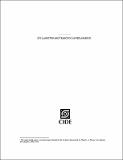|
Reseña:
|
This paper asks why women politicians tend to do worse in SMD districts than in their PR counterparts, even with gender quotas. Mexico is an excellent case to study this phenomenon because it has a PR and a SMD tier, both with a quota rule, and a ban on consecutive reelection that limits the effects of incumbency advantage. This setting allows us to explore a key difference between SMD and closed list PR seats: campaigning. Despite the fact that most female candidates are sent to losing SMD districts in Mexico we cannot know conclusively whether party leaders ignore quality female candidates in competitive and bastion areas in favor of their male copartisans. Thus, this paper analyzes the role of candidate’s background and experience in a sample of SMD candidates. We found that the gender gap in vote shares and in the probability of victory is mitigated once prior experience and party strength are controlled for. We use interviews with winning and losing candidates of both genders to understand how prior backgrounds can help a SMD candidate. We found that legislative campaigns in Mexico depend heavily on the ability of the deputy hopeful to procure local political brokers who are able to control or mobilize blocks of voters. Moreover, the candidate’s prior experience in the locality helps create a valuable reputation for access to government services that these brokers need to deliver selective goods to their followers. |

